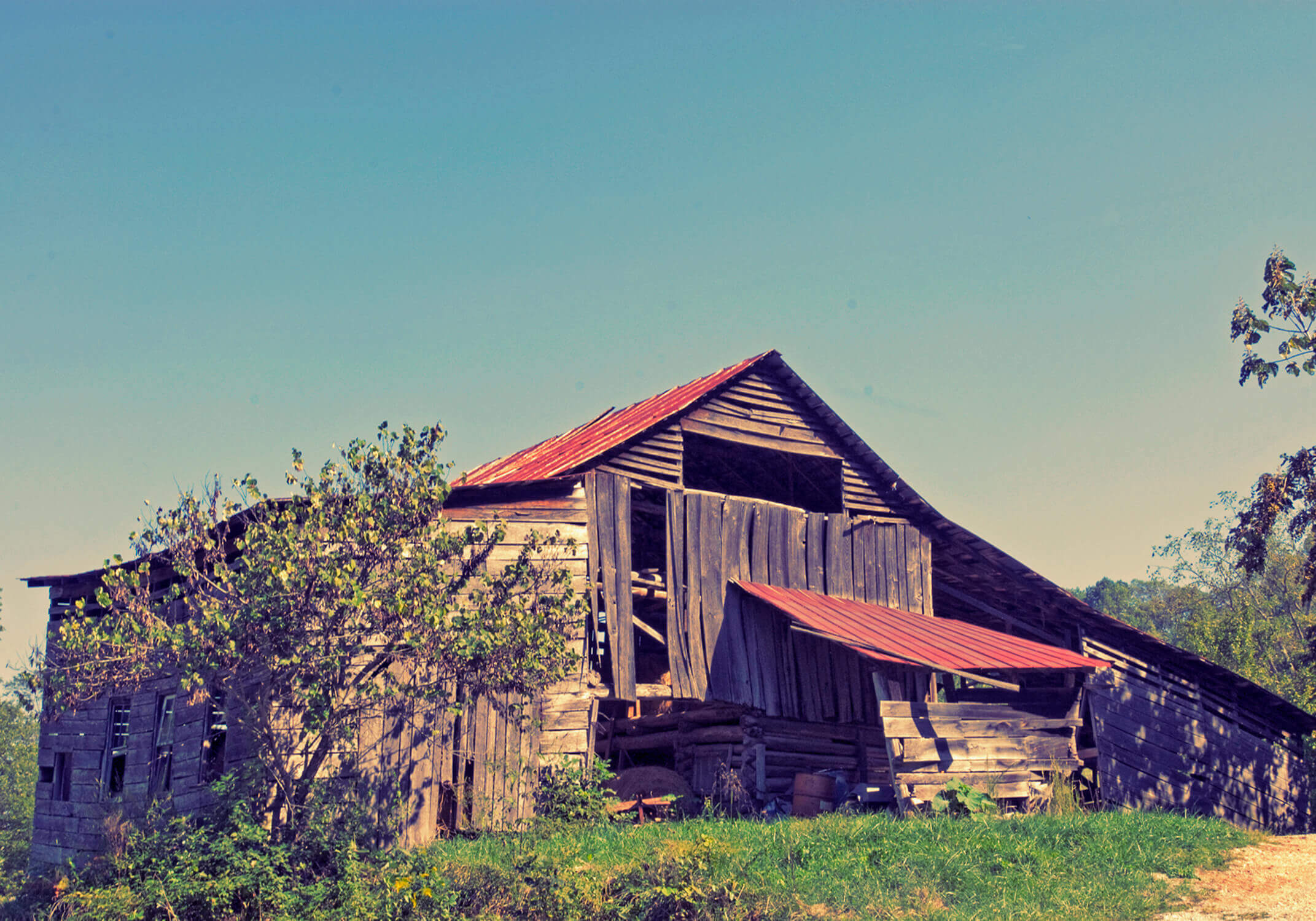Salvage Efforts
Jul 01, 2019

If you’re a fan of cable television design shows, the fanfare around simple repurposed barn boards comes as no surprise.
Tune in most anytime or log on to your favorite social media platform, and you can find someone crafting something ruggedly beautiful from the remnants of Grandpa’s cattle barn or tobacco barn. The boards are often repurposed as rich-colored flooring, a dramatic accent wall, or a rustic piece of furniture like a bookcase or entertainment center. I get it. I’ve found it’s hard to beat the weathered gray planks as a simple but stunning background for a quick portrait.
The popularity of the humble building material with creative do-it-yourselfers seems to have, in some cases, accelerated the demise of landmarks that were already disappearing. A recent article in the Louisville Courier-Journal related a number of rural capers where thieves were stripping boards from community barns in the dead of night. Local law enforcement was on the case but related that such incidents were common in many rural states, including neighboring Tennessee.
In many cases, time and weather have taken their toll long before woodworkers recognized the value of the repurposed materials. I can remember so many of the beautiful barns and other buildings I’ve often driven past as I’ve crisscrossed the state for The Cooperator that are no longer standing: massive historical barns near Mooresburg and another near Maryville High School in Blount County. Numerous Rock City barns directed travelers to the famous roadside attraction in Chattanooga. And, of course, there are many extraordinary cantilever barns found mostly in East Tennessee and Western North Carolina — predominantly in Blount and Sevier counties.
At my home place in Union County, our tobacco and cattle barn both succumbed to storms long ago. I spent many hours playing in them as a child and never gave a thought to them not being there one day.
I have a friend who recently decided to sell boards from one of the old barns and a corncrib on his farm. Both buildings had fallen into disrepair and their condition deteriorated over the years. They were no longer being used for their intended purpose. He is not a farmer, and honestly, he can certainly use the money. But it’s sad to see these connections to his family’s farming history disappear.
I suppose it’s better to see these beloved buildings recycled and repurposed rather than simply discarded. At least someone will get to enjoy them further.
Tune in most anytime or log on to your favorite social media platform, and you can find someone crafting something ruggedly beautiful from the remnants of Grandpa’s cattle barn or tobacco barn. The boards are often repurposed as rich-colored flooring, a dramatic accent wall, or a rustic piece of furniture like a bookcase or entertainment center. I get it. I’ve found it’s hard to beat the weathered gray planks as a simple but stunning background for a quick portrait.
The popularity of the humble building material with creative do-it-yourselfers seems to have, in some cases, accelerated the demise of landmarks that were already disappearing. A recent article in the Louisville Courier-Journal related a number of rural capers where thieves were stripping boards from community barns in the dead of night. Local law enforcement was on the case but related that such incidents were common in many rural states, including neighboring Tennessee.
In many cases, time and weather have taken their toll long before woodworkers recognized the value of the repurposed materials. I can remember so many of the beautiful barns and other buildings I’ve often driven past as I’ve crisscrossed the state for The Cooperator that are no longer standing: massive historical barns near Mooresburg and another near Maryville High School in Blount County. Numerous Rock City barns directed travelers to the famous roadside attraction in Chattanooga. And, of course, there are many extraordinary cantilever barns found mostly in East Tennessee and Western North Carolina — predominantly in Blount and Sevier counties.
At my home place in Union County, our tobacco and cattle barn both succumbed to storms long ago. I spent many hours playing in them as a child and never gave a thought to them not being there one day.
I have a friend who recently decided to sell boards from one of the old barns and a corncrib on his farm. Both buildings had fallen into disrepair and their condition deteriorated over the years. They were no longer being used for their intended purpose. He is not a farmer, and honestly, he can certainly use the money. But it’s sad to see these connections to his family’s farming history disappear.
I suppose it’s better to see these beloved buildings recycled and repurposed rather than simply discarded. At least someone will get to enjoy them further.